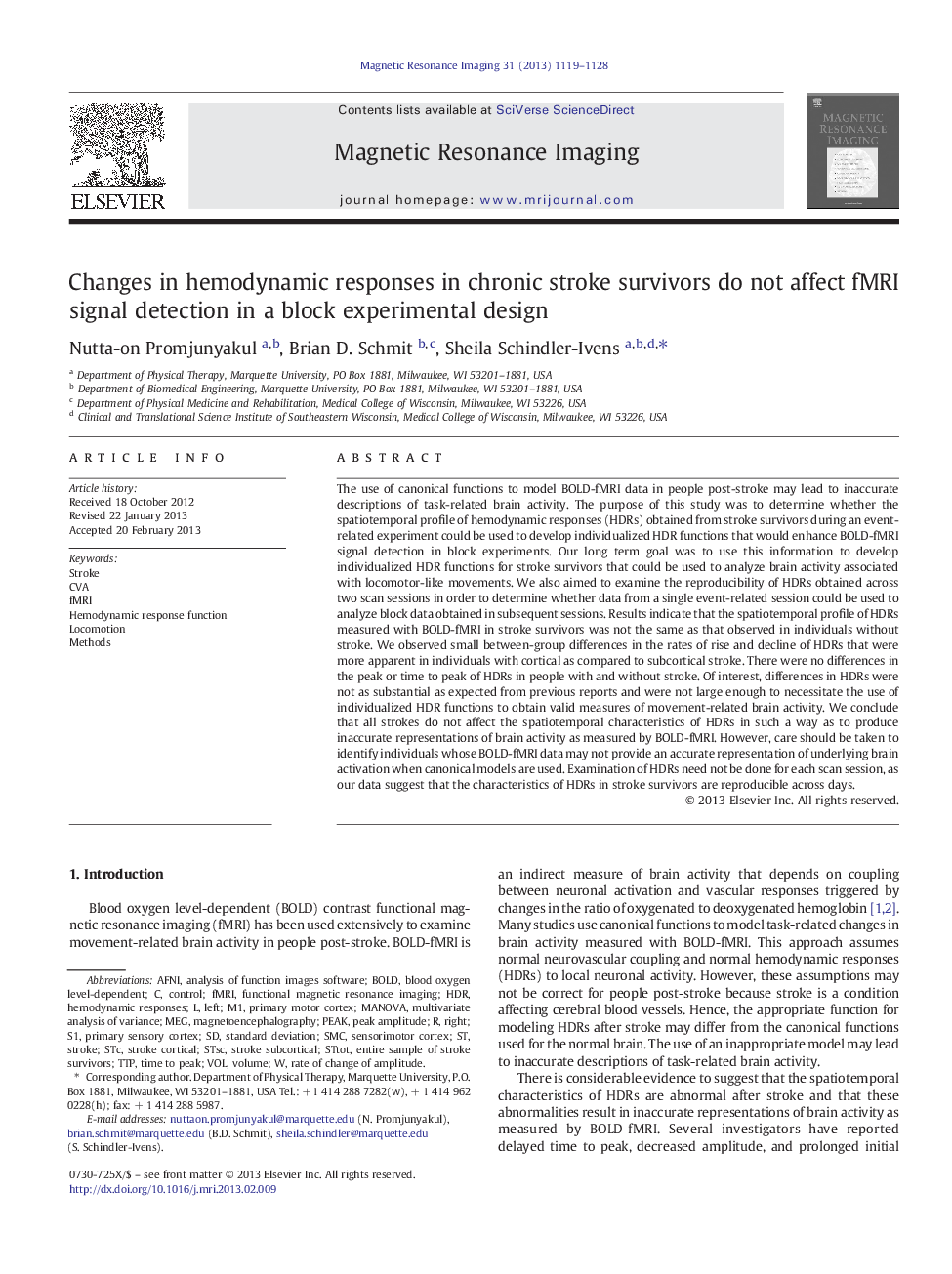| کد مقاله | کد نشریه | سال انتشار | مقاله انگلیسی | نسخه تمام متن |
|---|---|---|---|---|
| 1806655 | 1025221 | 2013 | 10 صفحه PDF | دانلود رایگان |

The use of canonical functions to model BOLD-fMRI data in people post-stroke may lead to inaccurate descriptions of task-related brain activity. The purpose of this study was to determine whether the spatiotemporal profile of hemodynamic responses (HDRs) obtained from stroke survivors during an event-related experiment could be used to develop individualized HDR functions that would enhance BOLD-fMRI signal detection in block experiments. Our long term goal was to use this information to develop individualized HDR functions for stroke survivors that could be used to analyze brain activity associated with locomotor-like movements. We also aimed to examine the reproducibility of HDRs obtained across two scan sessions in order to determine whether data from a single event-related session could be used to analyze block data obtained in subsequent sessions. Results indicate that the spatiotemporal profile of HDRs measured with BOLD-fMRI in stroke survivors was not the same as that observed in individuals without stroke. We observed small between-group differences in the rates of rise and decline of HDRs that were more apparent in individuals with cortical as compared to subcortical stroke. There were no differences in the peak or time to peak of HDRs in people with and without stroke. Of interest, differences in HDRs were not as substantial as expected from previous reports and were not large enough to necessitate the use of individualized HDR functions to obtain valid measures of movement-related brain activity. We conclude that all strokes do not affect the spatiotemporal characteristics of HDRs in such a way as to produce inaccurate representations of brain activity as measured by BOLD-fMRI. However, care should be taken to identify individuals whose BOLD-fMRI data may not provide an accurate representation of underlying brain activation when canonical models are used. Examination of HDRs need not be done for each scan session, as our data suggest that the characteristics of HDRs in stroke survivors are reproducible across days.
Journal: Magnetic Resonance Imaging - Volume 31, Issue 7, September 2013, Pages 1119–1128